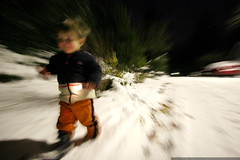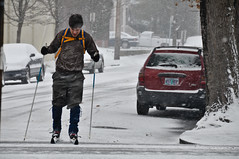
Not one for New Year's resolutions, I still plan to tack this "How to Simplify" blog post by "Zen Habits" master Leo Babauta on a bulletin board where I can see it every day. Babauta wrote this timely reminder on setting priorities with small businesses in mind, but individuals will benefit as well.
Spelling out a mantra for success in this Mashable post, he offers these tips for focusing on higher-impact tasks:
- Ask yourself: what one project will have the biggest impact on my future ... ? Focus on this.
- Every day, pick three most important tasks to complete, and do them before anything else.
- At least one of the most important tasks should move that high-impact project forward.
- Delegate lower-impact tasks that still need to be done. Only allow yourself to focus on the highest-impact tasks.
He sums up this part of his article nicely:
Each day, choose three tasks that will have the biggest impact, and do those first. Any other tasks you get done that day will be gravy.As one of the first respondents to Babauta's post commented: It's simple but timely advice "in today's cluttered fast pace world."
-rp-
(Photo credit: "fast pace world" by Jennifer Buehrer, courtesty of Flickr.com)































